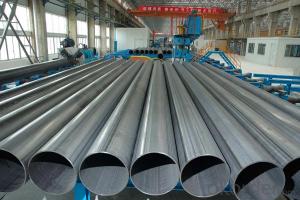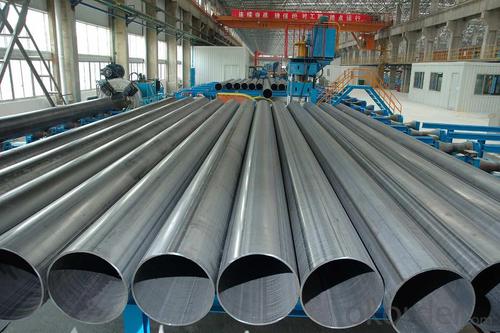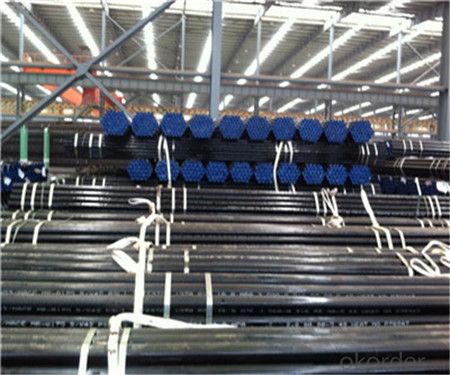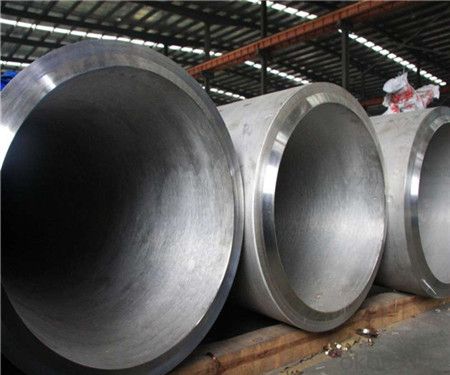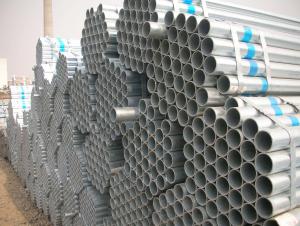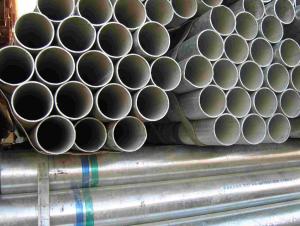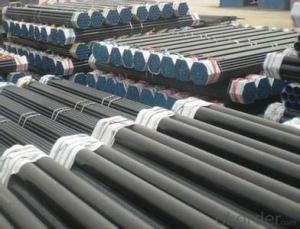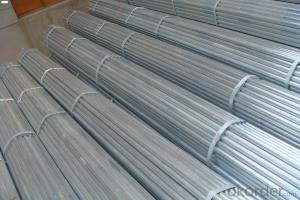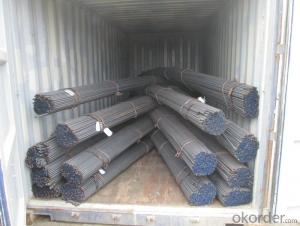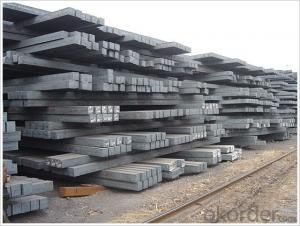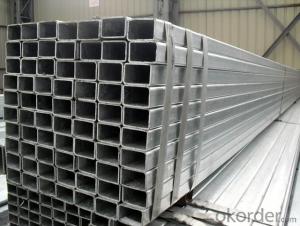Round Steel Pipes with Good Quality Q195-Q345
- Loading Port:
- Tianjin
- Payment Terms:
- TT or LC
- Min Order Qty:
- 20 m.t.
- Supply Capability:
- 15000 m.t./month
OKorder Service Pledge
OKorder Financial Service
You Might Also Like
1、Structure of Round Pipe :
Seamless pipe is formed by drawing a solid billet over a piercing rod to create the hollow shell. As the manufacturing process does not include any welding, seamless pipes are perceived to be stronger and more reliable. Historically seamless pipe was regarded as withstanding pressure better than other types, and was often more easily available than welded pipe.
2、Main Features of Round Pipe:
• High manufacturing accuracy
• High strength
• Small inertia resistance
• Strong heat dissipation ability
• Good visual effect
• Reasonable price
3、Round Pipe Specification:
Standard | GB, DIN, ASTM ASTM A106-2006, ASTM A53-2007 |
Grade | 10#-45#, 16Mn 10#, 20#, 45#, 16Mn |
Thickness | 8 - 33 mm |
Section Shape | Round |
Outer Diameter | 133 - 219 mm |
Place of Origin | Shandong, China (Mainland) |
Secondary Or Not | Non-secondary |
Application | Hydraulic Pipe |
Technique | Cold Drawn |
Certification | API |
Surface Treatment | factory state or painted black |
Special Pipe | API Pipe |
Alloy Or Not | Non-alloy |
Length | 5-12M |
Outer Diameter | 21.3-610mm |
Grade | 20#, 45#, Q345, API J55, API K55, API L80, API N80, API P110, A53B |
Standard | ASME, ASTM |
1) Material:20#(ASTM A 106/A53 GRB.API5LGRB,GB),45#,16Mn,10#.
2) Specification range:OD:21.3-610mm,WT:6-70mm,length:6-12m or according to the requirement of clients.
3) Excutive standards:GB,ASME API5L.ASTM A 106/A53,Despite of the above standards,we can also supply seamless steel pipe with standard of DIN,JIS,and so on,and also develop new products according to the requirements of our clients!
4) Surface:black lacquered,varnish coating or galvanized.
5) Ends:Beveled or square cut,plastic capped,painted.
6) Packing:bundles wrapped with strong steel strip,seaworthy packing.
4、Packaging & Delivery
Packaging Details: | seaworthy package,bundles wrapped with strong steel strip |
Delivery Detail: | 15-30days after received 30%TT |
5、FAQ of Round Pipe:
①How is the quality of your products?
Our products are manufactured strictly according to national and internaional standard, and we take a test
on every pipe before delivered out. If you want see our quality certifications and all kinds of testing report, please just ask us for it.
Guaranteed: If products’ quality don’t accord to discription as we give or the promise before you place order, we promise 100% refund.
②How about price?
Yes, we are factory and be able to give you lowest price below market one, and we have a policy that “ for saving time and absolutely honest business attitude, we quote as lowest as possible for any customer, and discount can be given according to quantity”,if you like bargain and factory price is not low enough as you think, just don’t waste your time.Please trust the quotation we would give you, it is professional one.
③Why should you chose us?
Chose happens because of quality, then price, We can give you both.Additionally, we can also offer professional products inquiry, products knowledge train(for agents), smooth goods delivery, exellent customer solution proposals.Our service formula: good quality+good price+good service=customer’s trust
SGS test is available, customer inspection before shipping is welcome, third party inspection is no problem.
6、Round Pipe Images:
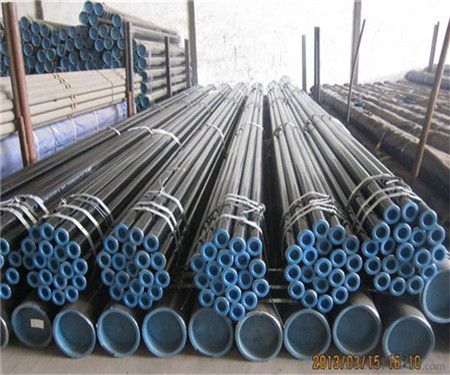
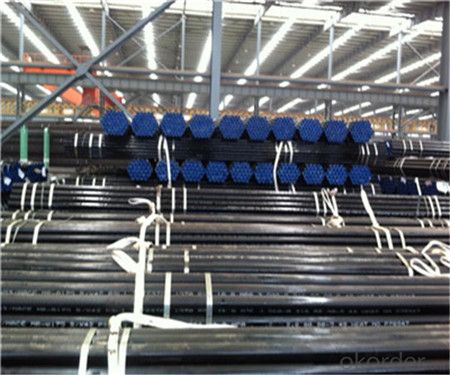
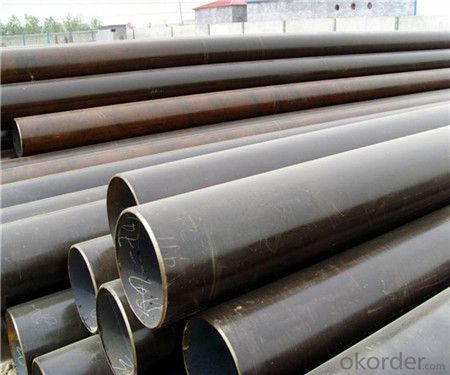
- Q: Are steel tubes and round steel in weight or length when purchased?
- It's priced by weight. The cutting process should size to determine the length (otherwise - please specify the weight of the material), the material ration to calculate weight for cost accounting as.
- Q: DN80 seamless steel tube, what is the standard thickness?
- The DN80 specification is 89*6 seamless steel management formula = (outside diameter wall thickness) * wall thickness *0.02466= per meter weight
- Q: Can steel pipes be used for transporting sewage?
- Yes, steel pipes can be used for transporting sewage. They are commonly used in sewage systems due to their durability, strength, and resistance to corrosion.
- Q: How are steel pipes affected by international trade policies?
- Steel pipes can be significantly impacted by international trade policies. These policies can include tariffs, quotas, and other trade barriers that affect the import and export of steel pipes. Changes in trade policies can lead to fluctuations in prices, supply, and demand for steel pipes. Additionally, trade policies can also influence the competitiveness of domestic steel pipe producers in the global market.
- Q: Can steel pipes be used for underground sprinkler systems?
- Yes, steel pipes can be used for underground sprinkler systems. Steel pipes are known for their durability and strength, making them a suitable choice for underground applications. They are resistant to corrosion and can withstand high pressure and temperature, making them suitable for delivering water to sprinkler heads. However, it is important to note that steel pipes may require additional coatings or protective measures to prevent rusting and corrosion over time. Additionally, steel pipes may be more expensive than other materials such as PVC or polyethylene, so the cost factor should be considered as well. Overall, steel pipes can be a viable option for underground sprinkler systems, particularly in areas with harsher environmental conditions.
- Q: Can steel pipes be used for oil wells?
- Yes, steel pipes can be used for oil wells. Steel pipes are highly durable and resistant to corrosion, making them suitable for the harsh conditions and high-pressure environments encountered in oil drilling operations.
- Q: How many meters per ton of steel tube?
- Formula of steel tube: (outside diameter wall thickness) * wall thickness *0.02466= per meter weight1000 divided by the weight per metre is how many meters per ton
- Q: Can steel pipes be used for fire protection systems?
- Yes, steel pipes can be used for fire protection systems. Steel pipes have high heat resistance and can withstand extreme temperatures, making them suitable for carrying water, foam, or other fire suppressants in fire protection systems. Additionally, steel pipes are durable, strong, and have a long lifespan, making them a reliable choice for fire safety applications.
- Q: Can steel pipes be used for compressed air systems?
- Yes, steel pipes can be used for compressed air systems. Steel pipes are commonly used in industrial applications due to their high strength and durability. They can withstand the pressure and temperature variations associated with compressed air systems, making them a suitable choice for such applications.
- Q: Can steel pipes be used for conveying abrasive slurries?
- Yes, steel pipes can be used for conveying abrasive slurries. Steel pipes are known for their durability and strength, making them suitable for handling abrasive materials such as slurries. However, to ensure longevity and prevent excessive wear, it is important to select the appropriate grade of steel and consider factors such as pipe thickness, lining options, and flow velocity. Additionally, implementing proper maintenance and inspection procedures can help to detect and address any wear or corrosion that may occur over time.
Send your message to us
Round Steel Pipes with Good Quality Q195-Q345
- Loading Port:
- Tianjin
- Payment Terms:
- TT or LC
- Min Order Qty:
- 20 m.t.
- Supply Capability:
- 15000 m.t./month
OKorder Service Pledge
OKorder Financial Service
Similar products
Hot products
Hot Searches
Related keywords
